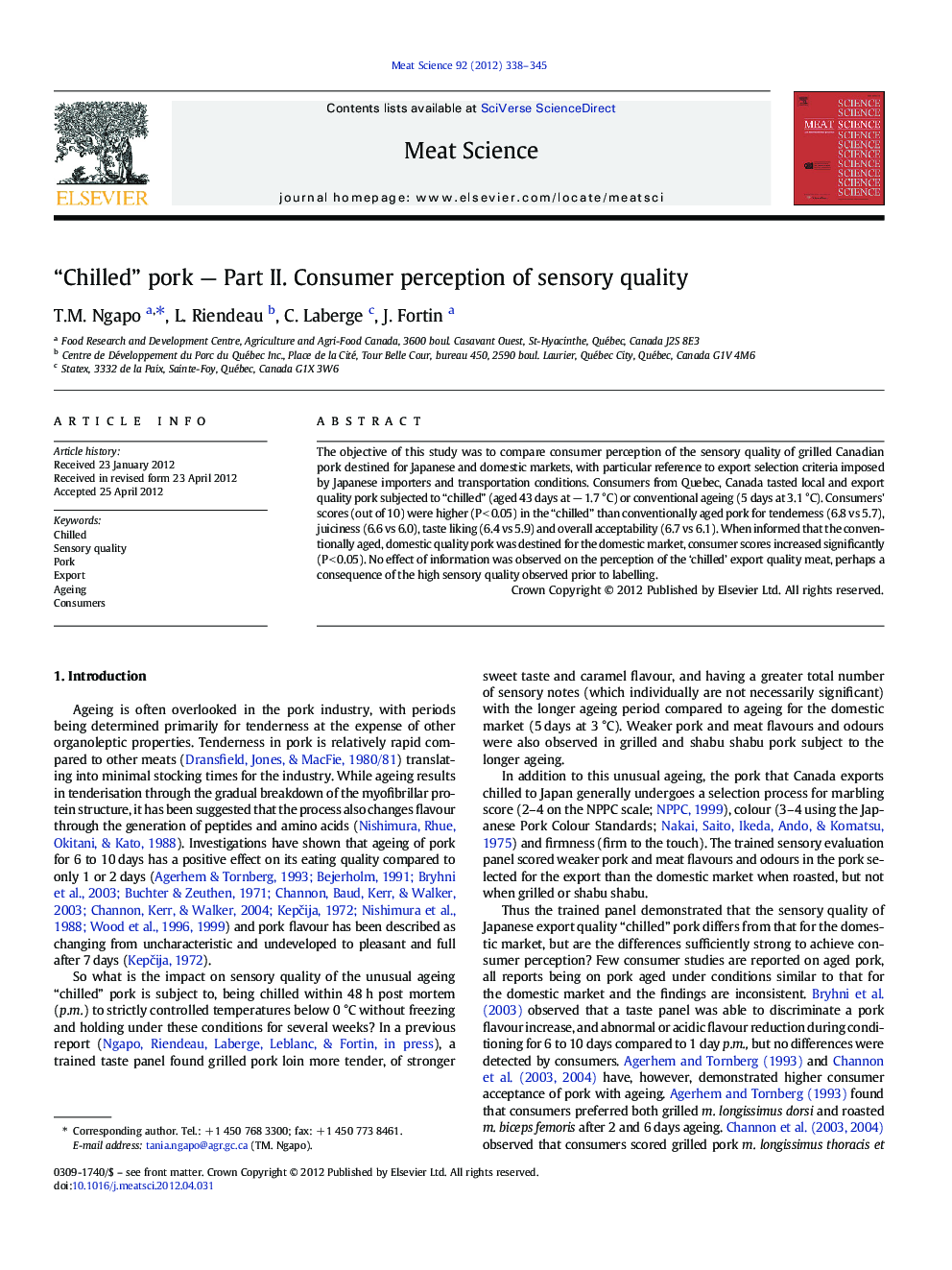| Article ID | Journal | Published Year | Pages | File Type |
|---|---|---|---|---|
| 5791975 | Meat Science | 2012 | 8 Pages |
The objective of this study was to compare consumer perception of the sensory quality of grilled Canadian pork destined for Japanese and domestic markets, with particular reference to export selection criteria imposed by Japanese importers and transportation conditions. Consumers from Quebec, Canada tasted local and export quality pork subjected to “chilled” (aged 43 days at â 1.7 °C) or conventional ageing (5 days at 3.1 °C). Consumers' scores (out of 10) were higher (P < 0.05) in the “chilled” than conventionally aged pork for tenderness (6.8 vs 5.7), juiciness (6.6 vs 6.0), taste liking (6.4 vs 5.9) and overall acceptability (6.7 vs 6.1). When informed that the conventionally aged, domestic quality pork was destined for the domestic market, consumer scores increased significantly (P < 0.05). No effect of information was observed on the perception of the 'chilled' export quality meat, perhaps a consequence of the high sensory quality observed prior to labelling.
⺠Chilled (-1.7 °C, 43 days) pork scored better than control (3.1 °C, 5 days) pork. ⺠Consumer scores for domestic quality pork increased with information. ⺠No effect of information was observed on the perception of export quality meat.
